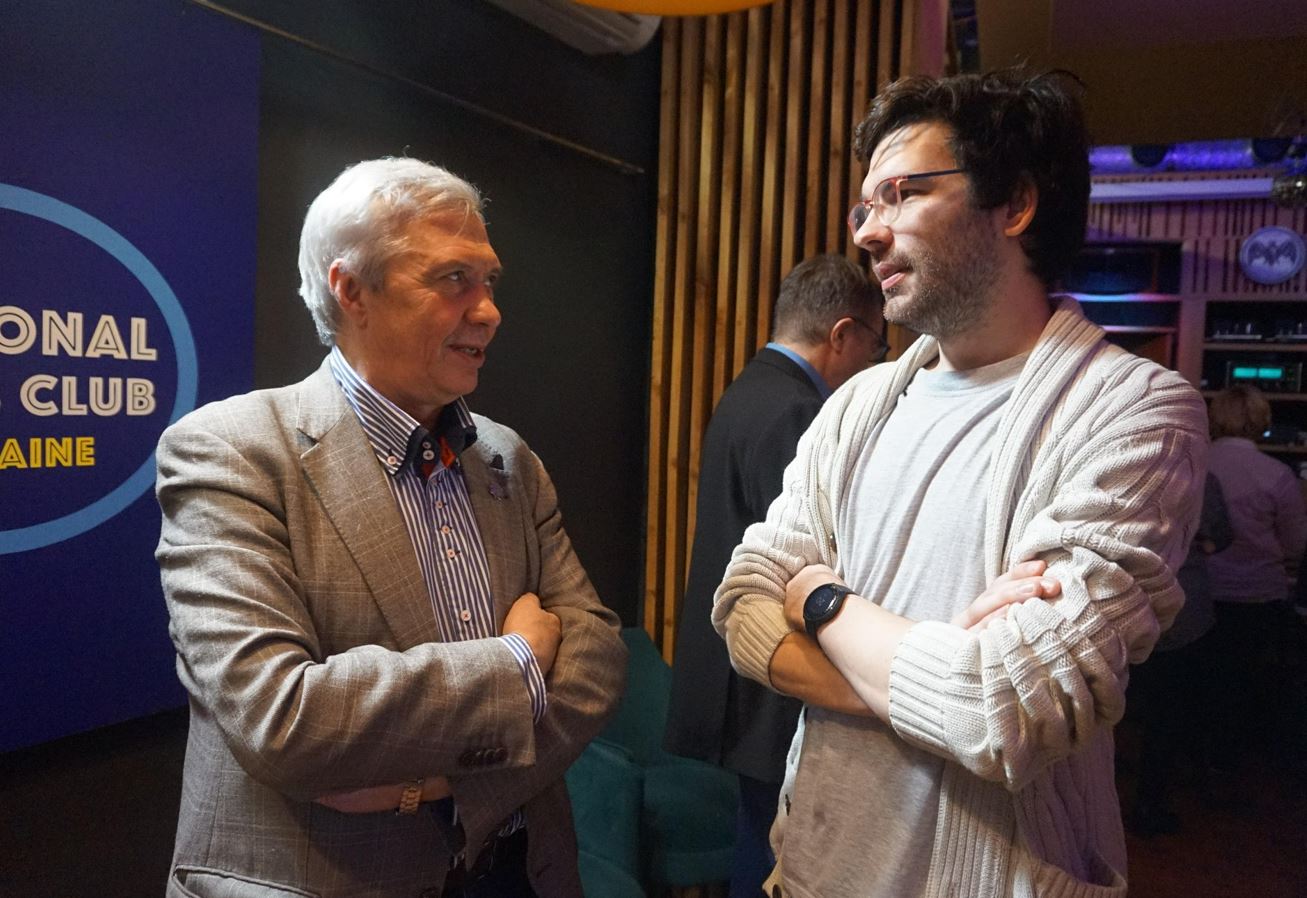UTA alumnus advises Ukrainian network of independent journalists

All three candidates for the Ukraine presidency initially declined to attend the final 2019 debate—so the organizers pivoted to a policy discussion among political experts.
But then the top candidate showed up unannounced, and University of Texas at Arlington alumnus Christopher Atwood (’10 BA, Russian) jumped into action. Atwood was there in his role as senior advisor to the Souspilnist Foundation, a nonprofit organization based in Kyiv that helped produce the debate.
He quickly helped rearrange the set into a podium for the candidate to deliver remarks. After the speech, Atwood scrambled to reset the stage back to its intended purpose.
“It’s a small thing, but that’s sort of how it is all the time at Souspilnist,” he said. “It’s a lot of hands-on work. You have to do what the moment demands.”
Souspilnist Foundation’s primary goal is to help develop a network of independent journalists who adhere to Western standards of a free and open press, which Atwood notes is a crucial pillar of a successful democracy. Since Russia’s invasion of Ukraine earlier this year, Souspilnist has also set up crisis centers throughout the country to help journalists who are displaced. It also launched online mental health support centers that everyone can use, not just journalists, and started a “Ukrainian Heroes for Freedom” series highlighting those resisting the invasion.
Atwood, who lived in Ukraine for many years, now lives in New York City with his Ukrainian wife and attends graduate school at Columbia University. Pursuing his master’s degree in Eastern European studies, he is passionate about continuing his exploration of contemporary challenges in international relations, the development of national identities in Eastern Europe, and the impact of information campaigns on social, cultural and political trends.
As Atwood he continues his work with Souspilnist, he’s taking a closer look at how journalists are reporting on the invasion within Ukraine and here in America as well. It's rigorous, often intense work requiring a grasp not just of the language, but also the culture and political climate. Atwood said his time at UTA studying Russian more than prepared him for the challenge.
“While my classmates were focused on the vocabulary, I made a strategic decision to focus my energy on the grammar because I knew it would help me communicate in a deeper manner,” he said. “It helped me be successful in language learning, but it also gave me confidence in knowing that whatever task I’m looking at, I can roughly gauge what I think the most important things are and adjust as I go. The ability to approach a problem analytically in that way isn’t a skill I had before I was an undergraduate student at UTA.”
- Written by Amber Scott, University Advancement
Alumni spotlight
Mavericks are known for blazing new trails. Read more stories on how UTA alumni are making an impact around the world.